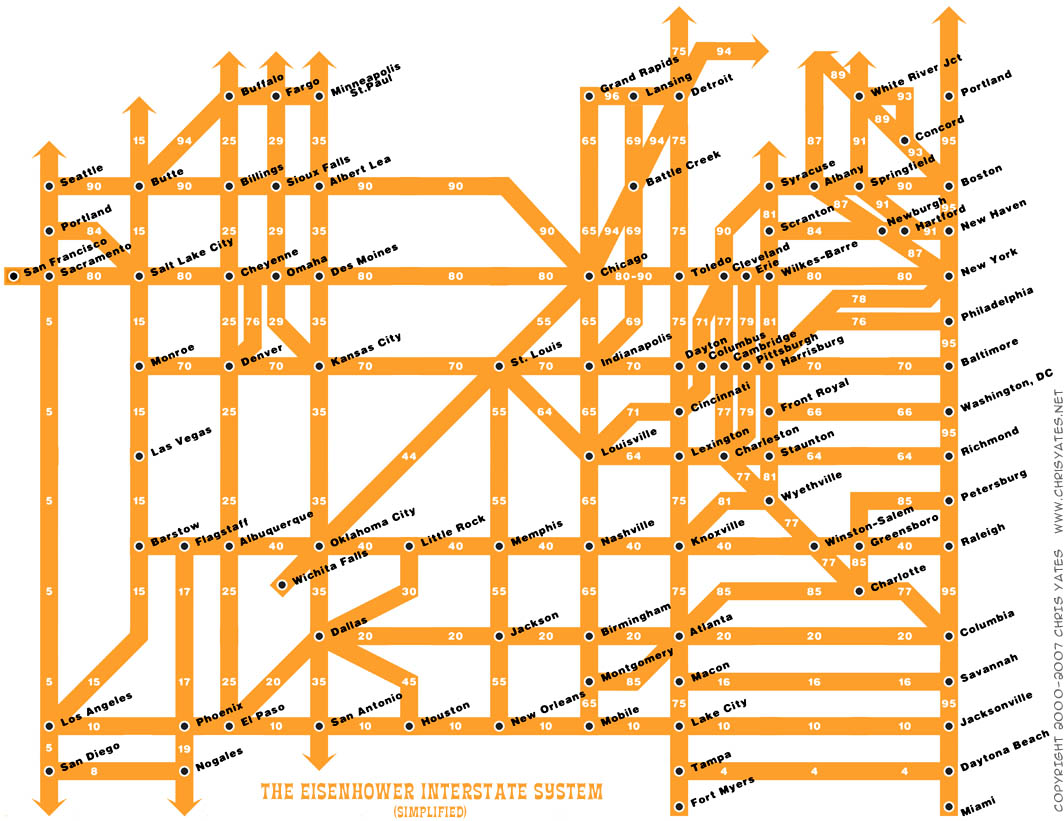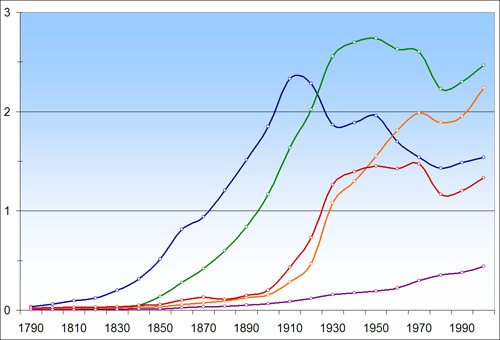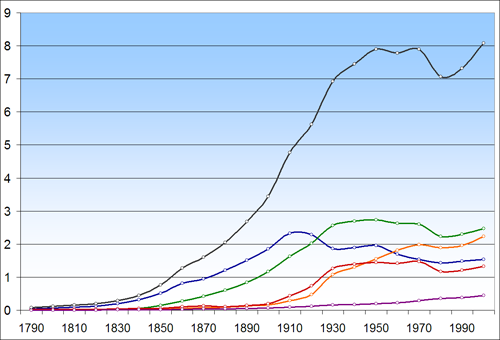DATA: So, I'm not an economist.
However, I've been reading more and more about the housing bubble. And I've seen it play out in real life; none of my friends are looking to buy houses, we all understand that they are overpriced. Today, I read a very interesting article by the good ol' bear Krugman, called Safe as Houses.
I used to live next door to a Russian émigré. One day he asked me to explain something that puzzled him about his new country. "This place seems very rich," he said, "but I never see anyone making anything. How does the country earn its money?"The answer, these days, is that we make a living by selling each other houses. Since December 2000 employment in U.S. manufacturing has fallen 17 percent, but membership in the National Association of Realtors has risen 58 percent.
I've thought for sometime, even back in Seattle, that housing prices were unsustainable. Now that I'm in New York, I know they are. (Living in a city with a
per-capita income of $22,402 but where the
average apartment closing price is now $1,300,000.00 will do that to a person.) Meanwhile
savings rates have fallen to zero,
interest only mortgages are proliferating, and the
twin deficits are rising.
Despite my generally bullish take on the US economy and future in general, I think it may be time to switch into hedge-mode and short a few housing related stocks.
Another Op-ed piece ties the economy to Bush's slowly falling approval ratings:
[P]eople are feeling insecure because they understand that today's economy is built on shaky fundamentals. Average Americans may not sit around fretting about America's outsized budget and trade deficits, and its unprecedented foreign indebtedness. But many of them - as buyers, borrowers and employees - are concerned about the increasingly bubbly housing sector.The economy's shortcomings are nowhere more obvious than in the job market. Nearly four years into an economic expansion, job growth is still substantially slower than in previous recoveries. Wages for 80 percent of the work force are barely keeping pace with inflation, and aid for the workers hurt by global trade is paltry. Because Mr. Bush fails to acknowledge the lackluster job and wage growth, he fails to respond appropriately. The administration's insistence that the economy is getting better all the time - a stance that is based on statistical aggregates that are often divorced from individuals' actual experience - only intensifies the anxiety that people feel.
 Friday, February 16, 2007 at 9:45AM
Friday, February 16, 2007 at 9:45AM 







